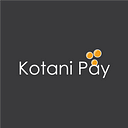How Celo is Changing Akinyi’s Life
It is estimated that 1.7 billion adults globally are unbanked, meaning that they do not have an account at a financial institution or through a mobile money provider. Of this number, the majority tend to be young, of the female gender, from poorer households, with a low educational attainment, and out of the labour force. Of those who are working, the majority are self-employed.
In this article, we seek to highlight how Celo would potentially improve the financial and living standards of this demographic.
Akinyi is a 24 year old self-employed vegetable vendor. She is a mother of three. She was unable to complete her high school education due to financial constraints. She has been successful at growing a business that provides for her and her family. Akinyi’s husband, Dennis, is a casual labourer and has an unsteady stream of income.
Akinyi and her husband live in an informal settlement in the city of Nairobi and have to meet regular financial demands. They have to pay for their one-roomed house, feed their three children, and send money to her parents in the village from their meagre earnings. This year, her first born son has just joined primary school. Akinyi is distressed that she cannot access lending facilities to supplement her earnings and educate her son.
Discovering Celo
Fortunately, Akinyi meets a micro-entreprise company that is leveraging the Celo network to provide loaning facilities to the unbanked and underbanked populations. With Celo, Akinyi can meet her basic needs, pursue her own path, and support her community
The loaning officer asks Akinyi to register her details via Unstructured Supplementary Service Data (USSD), the primary mode of mobile interface for a majority of the population in developing countries. Through Celo’s address-based encryption system, her data is stored on a secure blockchain on the Celo network. Akinyi does not have to know the details behind all this. All she has to do is key in her name and other necessary details and submit.
Celo’s algorithmic reserve-based stabilization mechanism enables Akinyi to save her business proceeds in a Celo wallet built by the micro-enterprise company. All she does is transfer cash at an agency owned by the micro-entreprise (which is the on-ramp) and any time she desires to withdraw, she can do so via her mobile money account (the off-ramp). No charges are placed on her savings, and her withdrawal from the Celo wallet is not charged. All Akinyi has to do is deposit cash with an agent and withdraw at her own convenience.
Lastly, Akinyi is able to build a digital identity and reputation tied to her transactions. Through a model that allows for 3-tiered KYC (Know Your Customer), Akinyi can be registered without a handful of identification documents. With her micro-credit history, Akinyi can take loans from the micro-entreprise company. Anyone around the world can contribute to this kitty through a peer-to-peer loaning service established by the micro-entreprise company established on the Celo network. Akinyi’s personal information is protected but her transactions give her access to a suitable loan tranche. Akinyi can now take loans to build her business, take her son to school, and support her family.
We believe, just like the rest of the Celo community, that is possible to engineer an inclusive and open financial system that addresses the needs and values of local communities. Money can be beautiful.
PS: Our team seeks to build blockchain solutions that help people like Akinyi. If you are interested in supporting our initiative through advice, community work, financing, among others, please contact us at hello[at]kotanipay[dot]com.
Hope you enjoyed the article. Kind regards from the Kotani Pay team.
